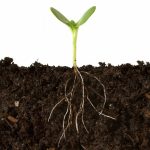Imagine adding one thing to a field and suddenly, as well as producing food, it also generates building materials, fuel and fodder. At the same time, this change would nourish the health of the soil, regulate the micro-climate and support pest-controlling wildlife like beneficial insects. Or maybe that addition could produce a whole other crop.












